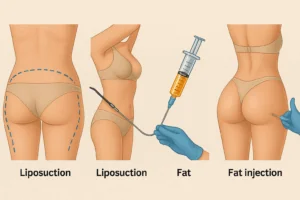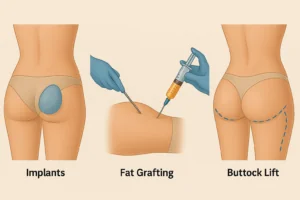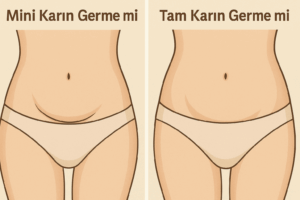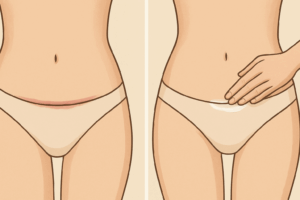Heart attacks are one of the most common causes of death worldwide. But the good news is that there are many things we can do to reduce the risk of a heart attack. In this article, we will take a detailed look at the steps you can take to protect your heart health and minimize your risk of heart attack.
Table of Contents
- What is a Heart Attack?
- Heart Attack Risk Factors
- Healthy Eating and Heart Health
- The Importance of Exercise and Physical Activity
- Heart Health Effects of Quitting Smoking
- Managing Stress
- Regular Health Checks
- Weight Control
- Limiting Alcohol Consumption
- The Importance of Sleep Patterns
- Medication and Doctor Follow-up
- Heart-Friendly Lifestyle Tips
1. What is a Heart Attack?
A heart attack, medically known as myocardial infarction, occurs when the blood supply to the heart muscle is suddenly cut off. This is usually caused by a rupture of plaque build-up in the heart vessels and the formation of a clot. The interruption of blood flow leads to oxygen deprivation of the heart muscle and cell death.
2. Heart Attack Risk Factors
Factors that increase the risk of heart attack fall into two main categories:
Modifiable Risk Factors:
- High blood pressure
- High cholesterol
- Cigarette smoking
- Obesity
- Sedentary lifestyle
- Diabetes
- Excessive stress
- Unhealthy diet
Non-modifiable Risk Factors:
- Age (risk increases after 45 years for men and 55 years for women)
- Gender (risk is higher in men)
- Family history
- Ethnicity
3. Healthy Nutrition and Heart Health
Your eating habits directly affect your heart health. Here are the key elements of a heart-healthy eating plan:
Mediterranean Diet:
One of the most effective dietary patterns for heart health is the Mediterranean diet. This diet includes:
- Plenty of fruits and vegetables
- Whole grains
- Olive Oil
- Fish and poultry
- Limited amounts of red meat
Important Foods for Heart Health:
- Omega-3 fatty acids (salmon, sardines, walnuts)
- Foods rich in fiber (oats, beans, lentils)
- Antioxidants (berries, dark green leafy vegetables)
- Magnesium (almonds, spinach)
- Potassium (bananas, potatoes, beans)
Foods to Avoid:
- Trans fats
- Saturated fats
- Excess salt
- Refined sugar and processed carbohydrates
4. Importance of Exercise and Physical Activity
Regular exercise is one of the most effective ways to maintain heart health. Benefits include:
- Lowers blood pressure
- Improves cholesterol levels
- Helps with weight control
- Reduces stress levels
- Strengthens the heart muscle
Recommended Amount of Exercise:
- At least 150 minutes of moderate-intensity aerobic activity per week or
- 75 minutes of high-intensity aerobic activity per week
- Muscle strengthening activities at least 2 days a week
Types of Exercise:
- Walking
- Running
- Cycling
- Swimming
- Dance
- Weight training
5. Heart Health Effects of Quitting Smoking
Smoking significantly increases the risk of heart attack. Quit smoking:
- Reduces the risk of heart attack
- Lowers blood pressure
- Improves blood circulation
- Increases oxygen levels
Quitting smoking can be difficult, but you can get help from your doctor and use methods such as nicotine replacement therapy.
6. Managing Stress
Chronic stress negatively affects heart health. For stress management:
- Meditation and mindfulness practices
- Deep breathing exercises
- Yoga
- Taking up hobbies
- Strengthening social connections
- Seeking professional help (when necessary)
7. Regular Health Checks
Regular check-ups are very important to monitor your heart health. They should include
- Blood pressure measurement
- Cholesterol level control
- Blood sugar test
- Body mass index (BMI) measurement
- ECG (when necessary)
8. Weight Control
Excess weight puts additional stress on the heart. To achieve and maintain a healthy weight:
- Portion control
- Choose healthy snacks
- Eat regular meals
- Increase water consumption
- Exercise regularly
9. Limiting Alcohol Consumption
Excessive alcohol consumption negatively affects heart health. If you consume alcohol
- No more than 2 standard drinks per day for men
- For women, a maximum of 1 standard drink per day is recommended. However, not drinking alcohol at all is the healthiest option.
10. Importance of Sleep Patterns
Good quality sleep is very important for heart health. Have a good sleep:
- Try to get 7-9 hours of sleep every night
- Establish a regular sleep schedule
- Keep your bedroom dark, quiet and cool
- Limit screen use before bedtime
- Reduce caffeine and alcohol consumption in the evening
11. Medication and Doctor Follow-up
In some cases, lifestyle changes may not be enough and medication may be needed. It is very important to take the medicines recommended by your doctor regularly. These may include:
- Blood pressure medicines
- Cholesterol-lowering drugs (statins)
- Aspirin (low dose)
- Blood sugar regulators (for diabetics)
12. Heart-Friendly Lifestyle Tips
- Walk for at least 30 minutes a day
- Use the stairs instead of the elevator
- Regularly stand up and take short walks at work or at home
- Try to consume fresh fruits and vegetables at every meal
- Aim to eat fish at least twice a week
- Incorporate stress management techniques into your daily routine
- Spend quality time with your loved ones, strengthen your social connections
- Take regular dental care (there is a link between oral health and heart health)
- Get your flu and pneumonia vaccinations
- Reduce salt consumption, prefer spices in meals
- Donate blood regularly (reduces blood viscosity)
Conclusion
Heart attack risk is largely related to our lifestyle choices. By taking steps such as eating healthy, exercising regularly, avoiding smoking, managing stress and having regular check-ups, you can significantly improve your heart health and reduce your risk of heart attack.
Remember, heart health is a lifelong journey. Small but consistent changes can make a big difference over time. Always consult your doctor if you have any health concerns or before making lifestyle changes.
A healthy heart is the key to a longer and better quality of life. Take care of yourself and love your heart!

























